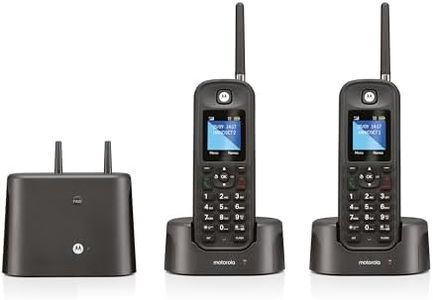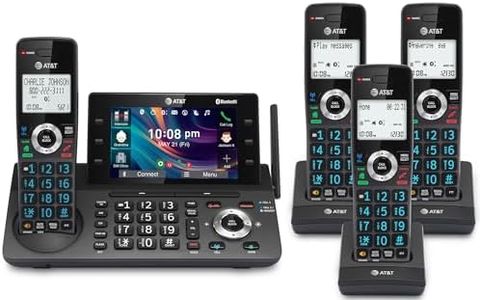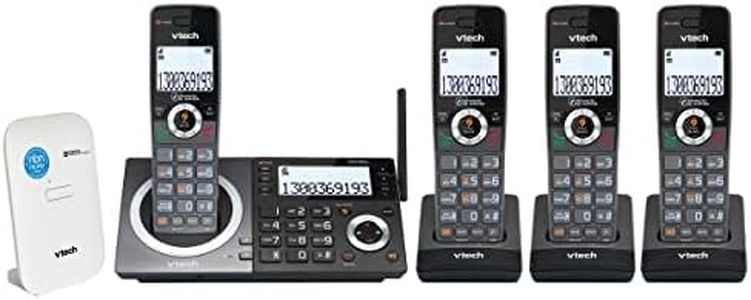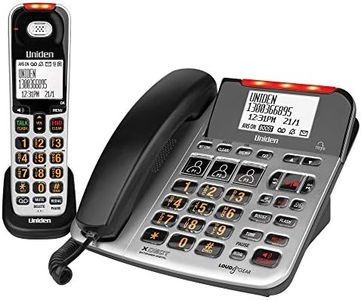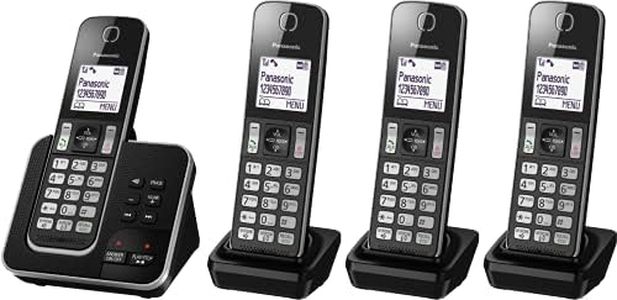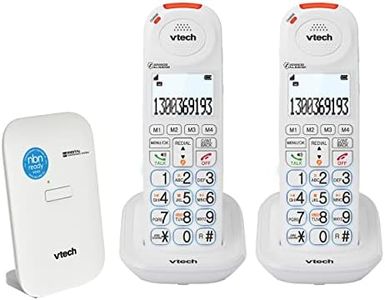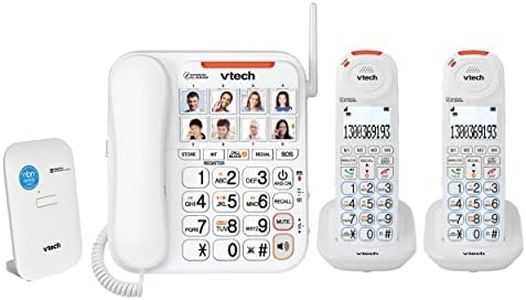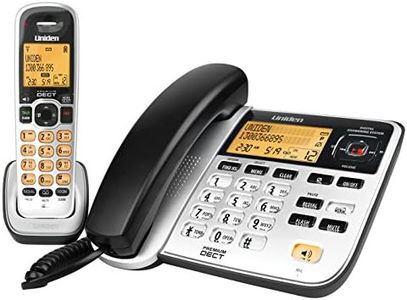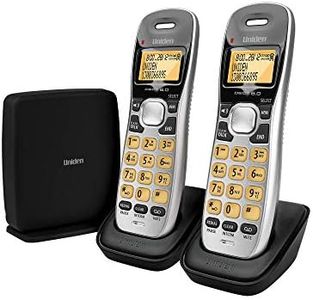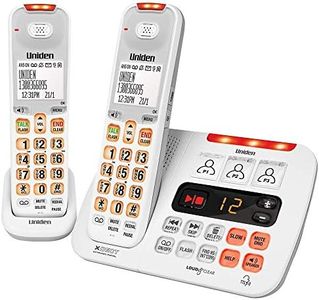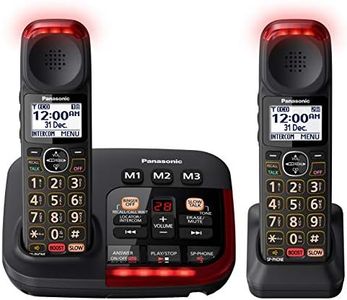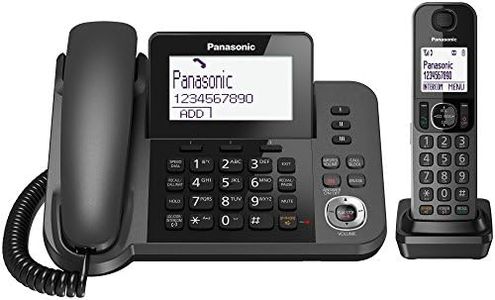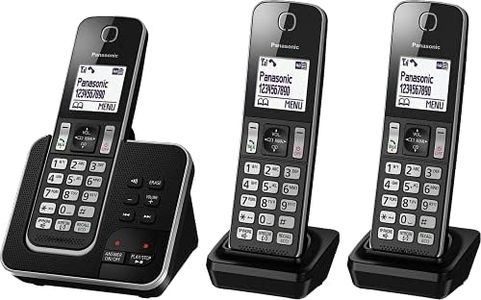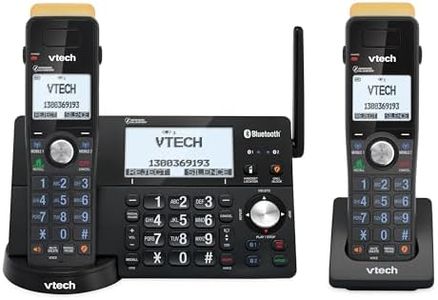We Use CookiesWe use cookies to enhance the security, performance,
functionality and for analytical and promotional activities. By continuing to browse this site you
are agreeing to our privacy policy
10 Best Landline Phones
From leading brands and best sellers available on the web.By clicking on a link to a third party's website, log data is shared with that third party.
Buying Guide for the Best Landline Phones
When choosing a landline phone, it's important to think about how and where you plan to use it. Landline phones can be straightforward or come with many extra features, so your needs should be the main factor in your decision. Consider who will be using the phone and whether it's meant for home, office, or elderly family members. Prioritize ease of use, clarity of calls, and the specific functions that would improve your day-to-day convenience.Corded vs. CordlessThis refers to whether the handset is connected to the base by a wire (corded) or uses a wireless signal to communicate with the base (cordless). Corded phones don't require batteries or charging and are less likely to suffer from call dropouts, making them great for emergencies and places where reliability is critical. Cordless phones offer freedom to move around while talking, ideal for large homes or multitasking. Think about your space and priorities: choose corded for reliability and cordless for mobility.
Number of HandsetsSome landline phones, especially cordless ones, come with only one handset, while others come in sets of two or more. More handsets mean you can spread them across different rooms, so you don’t need to run to a single location to answer calls. Consider how many rooms or family members may need access and select a set that matches your household's layout and habits.
Caller IDCaller ID lets you see who is calling before you pick up. This is helpful for screening unwanted calls and for quickly identifying friends, family, or colleagues. Some phones display the number only, while others may also show stored names. If you value peace of mind and convenience, ensure the phone supports caller ID and that your phone service provides this feature.
Answering MachineAn answering machine feature allows your phone to record messages when you’re not available to answer. This is important if you receive calls when you’re out or busy, and it means you won't miss important information. Some units let you access messages remotely by calling your own number. If you receive lots of messages or can’t answer immediately, a built-in answering machine will be useful.
Hearing Aid Compatibility & Volume ControlsPhones with hearing aid compatibility and easy-to-adjust volume controls are helpful for anyone with hearing difficulties. These features ensure clear, loud audio and reduce unwanted noise, making conversations easier to understand. If you or a user is hard of hearing, look for these accessibility features for a better experience.
Speakerphone FunctionA speakerphone lets you talk and listen without holding the handset, making it easier for group conversations or multitasking. Some phones offer high-quality speakers and noise reduction. Consider getting this if you often coordinate with several people or prefer hands-free conversations.
Display and Keypad SizeThe size and readability of the phone's display and buttons impact comfort and usability, especially for seniors or those with poor eyesight. Larger displays and well-spaced, backlit keys make dialing and reading caller information easier. If the phone will be used by someone with vision or dexterity issues, prioritize models with larger displays and buttons.
Range (for cordless phones)The range determines how far a cordless handset can be from its base and still work. A longer range lets you use the phone farther from the base, such as in large homes or yards, while a shorter range may mean dropped calls if you stray too far. Think about the size of your living or working area and choose a phone with a range that covers all the places you intend to use it.
